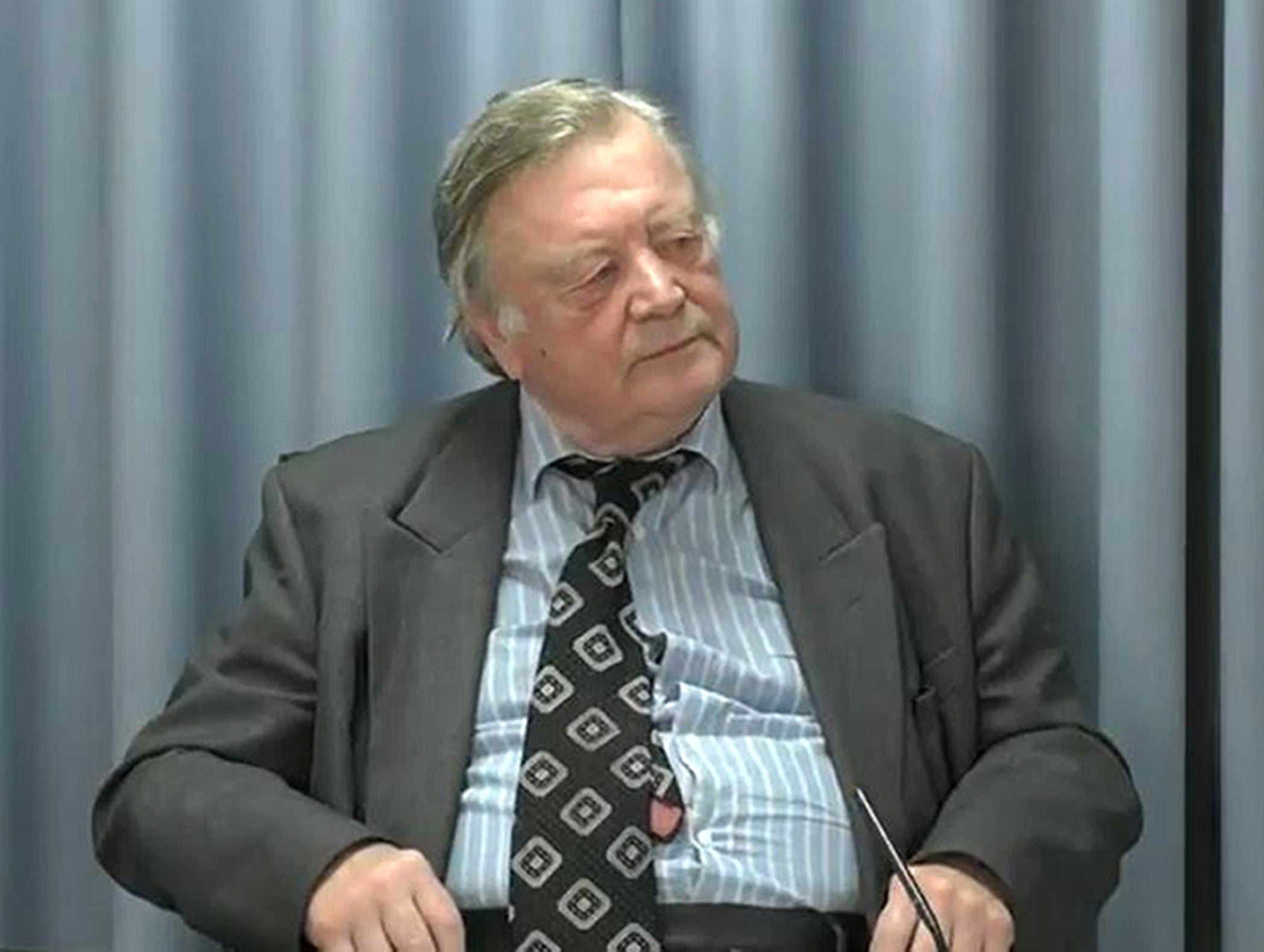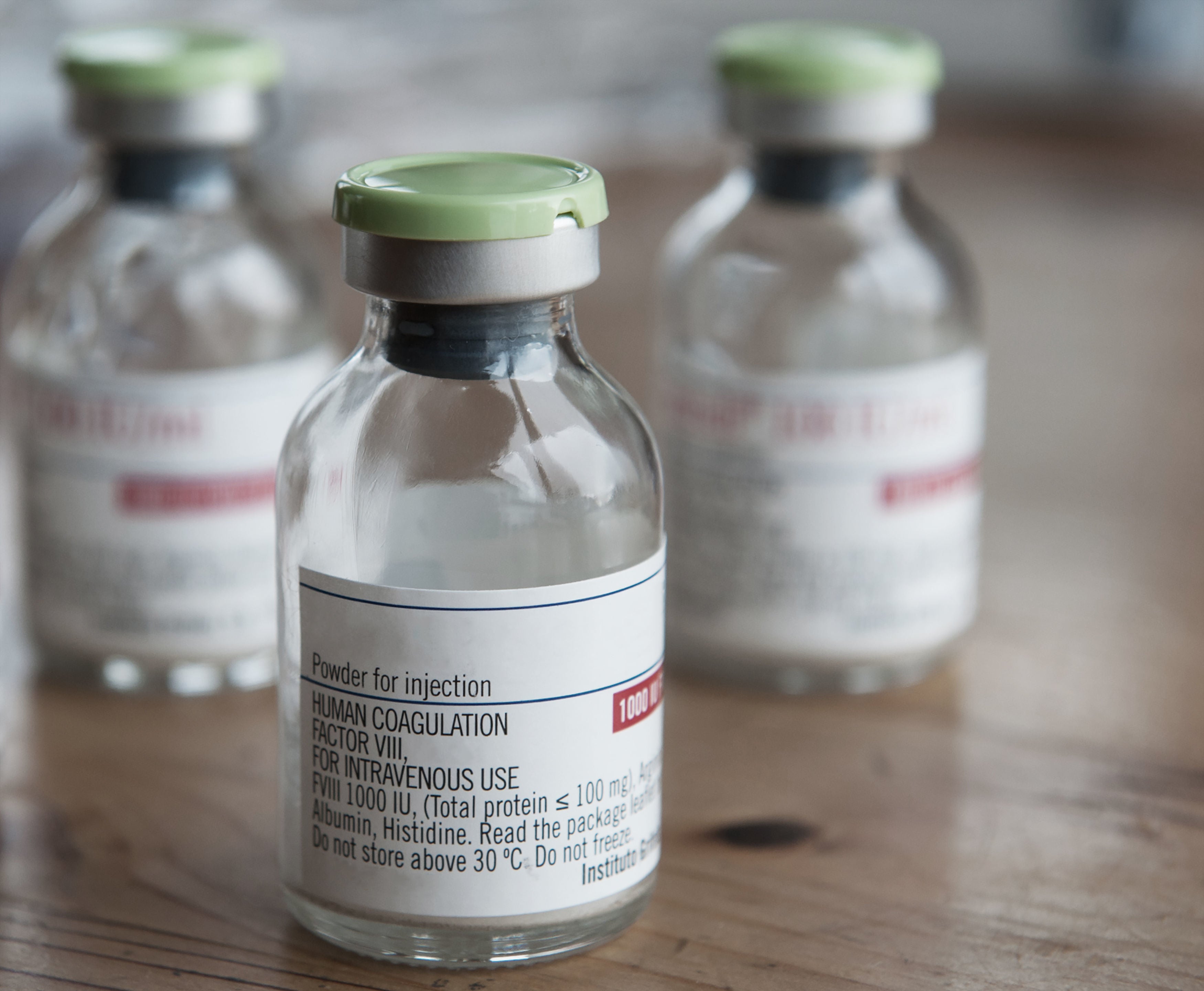Ken Clarke insists claim ‘no conclusive evidence’ blood products transmitted Aids was accurate
Thousands have died after receiving contaminated blood

Ken Clarke has said that his claim nearly 40 years ago that “there is no conclusive evidence that Aids is transmitted by blood products” was “entirely accurate” for the time.
At the Infected Blood Inquiry at London’s Fleetbank House on Wednesday, the Conservative peer defended his use of the statement in 1983.
Lord Clarke, who was a health minister from 1982 to 1985 and subsequently health secretary for two years from 1988, appeared as a witness.
The inquiry is being held to investigate the scandal of thousands of people diagnosed with HIV/Aids and/or hepatitis after receiving infected blood product treatments for haemophilia and other blood clotting disorders in the 1970s and 1980s.
About 3,000 people in the UK have died in the contaminated blood scandal, and the number of people who had been infected by the blood products ranges from 5,000 to 30,000. The exact number is not known.
The independent inquiry, into the use of contaminated Factor VIII and Factor IX clotting agents, is set to hear evidence from Lord Clarke for three days this week.
He told the hearing he was not the “author” of the phrase that he used in written communication to MPs and journalists, but that he did agree with its use and it being attributed to him.
The phrase was originally used in a press release in September 1983 announcing a new leaflet which was created to “discourage” people who were at high risk of contracting Aids from donating blood, the inquiry heard.
The phrase, used at the time Lord Clarke was health minister, said: “It has been suggested that Aids may be transmitted in blood or blood products, there is no conclusive proof that this is so.
“Nevertheless I can well appreciate the concern that this suggestion may cause.
“We must continue to minimise any possible risk of transmission of the disease by blood donation but it is not possible to test a person’s blood for the presence of Aids.”

The phrase was repeated again by Lord Clarke in a written response to a parliamentary question in November 1983.
Lord Clarke told the inquiry: “It wasn’t drafted by a minister. I can’t remember who did it but obviously somebody, somewhere, decided that that was the best most accurate line to take.
“It was repeatedly used by every minister. We kept repeating that because that was a scientific advice we had until it was perfectly clear to the medics that there was in fact sufficient proof [that Aids was transmitted]... we weren’t playing down that possibility.
“It seems to me...it’s a perfectly accurate description of where medical opinion was at that time. That’s presumably why the haemophilia doctors, the real experts, were still using Factor VIII.”
Lead counsel Jenni Richards QC pressed why the phrase “blood products are a likely cause of transmission of Aids” was not used instead, as it was the “mainstream view” in the department of health at that time, according to previous witness Dr Diana Walford.
Lord Clarke said: “We go on to say it’s a possibility that can’t be ruled out. I don’t know. You’ll have to ask Diana Walford that. She certainly would have been involved in any meeting which settled on this line to take.”
Ms Richards questioned if the line should have included an “express recognition” that Aids could be transmitted.
Lord Clarke responded: “Not really, it’s perfectly bloody obvious that everybody was working on that basis. This is just a drafting argument.
“There’s no secrecy about the fact there was a serious worry that people might be getting Aids from blood products.”
On the previous day of the inquiry, Lord Clarke said he was “not responsible” for blood products, and that he did not make any decisions on them during his time as health minister.
Blood clotting agents were made by pooling plasma from up to 40,000 donors and concentrating it. As there was a shortage in the UK, they were imported from the US, where people of high-risk groups – such as prisoners and drug users – sold their blood.
The previous most-prescribed treatment was cryoprecipitate, of which each unit was derived from plasma of one donor.
At the time of the infected blood was being used, HIV had not been first diagnosed and not enough was known about hepatitis. By the mid-1980s, the products were heat-treated to kill viruses once it was known that they were blood-borne.
There have also been thousands of cases of people being given infected blood around the world, including in the US, France, Ireland, Portugal, Italy, Japan, Canada, Iran, and Iraq.
The inquiry continues.
Join our commenting forum
Join thought-provoking conversations, follow other Independent readers and see their replies
Comments
Bookmark popover
Removed from bookmarks